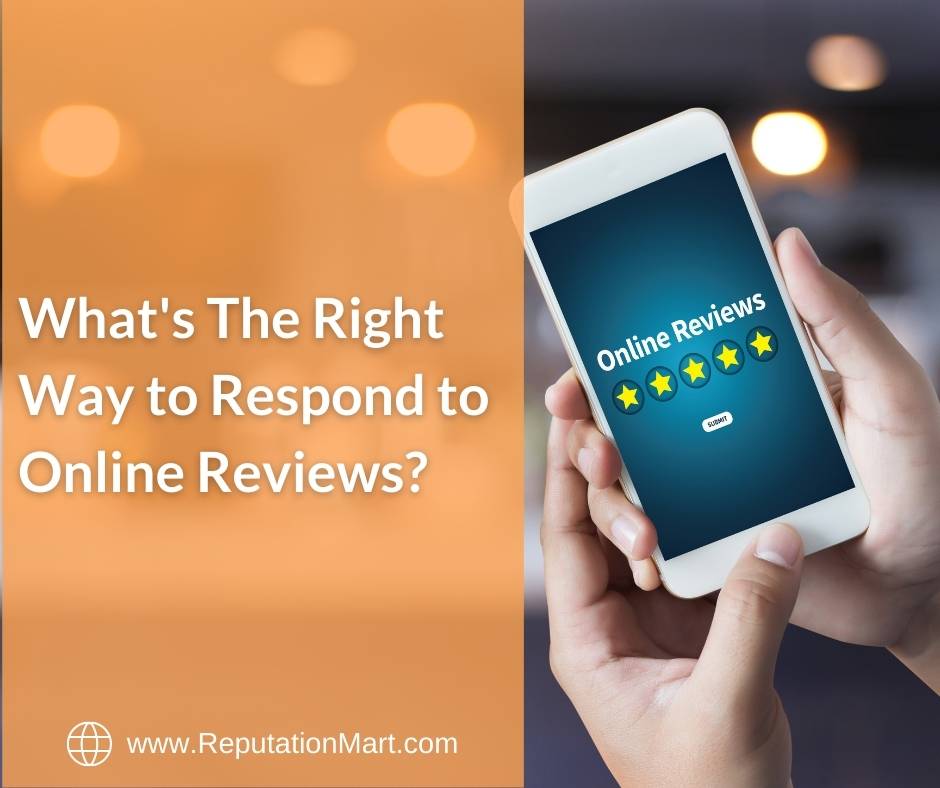|
Today, the voice of the customer is louder and more influential than ever before, especially for small and medium-sized enterprises (SMEs). Online platforms empower consumers to share their experiences widely, meaning a single negative review can ripple through the internet, potentially impacting your business's reputation and bottom line. If you're an SME owner, chances are you've faced the unsettling challenge of addressing unfavourable feedback online.
While such moments can feel like a gut punch, they don't have to signal defeat. With the right strategies and mindset, negative reviews can be transformed into powerful catalysts for business improvement and reputation enhancement.
This article will help you understand the impact of negative feedback, provide practical steps for managing your online presence, and demonstrate how to turn criticism into a valuable tool for business growth. Let's explore how to protect your lifework and turn potential setbacks into opportunities that foster a stronger, more resilient brand reputation. Understanding the Impact of Negative ReviewsImmediate Effects on BusinessThe immediate aftermath of receiving a negative review can feel like a crisis unfolding in real-time. You might observe a noticeable dip in sales, a decline in bookings, or a slowdown in traffic to your website. These are not just momentary setbacks; they indicate potential long-term consequences that could ripple throughout your business. Negative feedback does more than impact a single sale—it can tarnish your reputation, deter potential customers, and undermine the trust you've worked hard to build. Understanding these effects is crucial for mitigating damage and leveraging these insights to fortify your business against future challenges. Let's delve into the strategies that can help you manage these situations effectively and turn potential threats into opportunities for growth and enhancement. Long-term RepercussionsIf managed appropriately, negative reviews can cast a long-lasting shadow over your reputation, severely hampering your ability to attract new customers and retain existing ones. A compelling illustration of this is a local café that once overlooked a series of negative comments about its service. This neglect led to a gradual but noticeable shift in the community's perception. As the negative online narratives grew unchecked, they began to manifest physically, resulting in a marked decrease in foot traffic. The café's experience serves as a potent reminder that your business's digital footprint is an extension of your physical presence. Neglecting either can lead to detrimental effects that resonate far beyond the confines of the online world. This case underscores the essential truth that managing online feedback proactively is not just about damage control—it's about nurturing and sustaining your business's overall health and image.
This reality emphasizes SME owners' need to adopt a proactive stance towards online reputation management. It's not merely about responding to negative feedback but actively engaging with all customer interactions to shape a positive narrative. Implementing a comprehensive approach that includes monitoring reviews, responding thoughtfully to praise and criticism and soliciting feedback from satisfied customers can significantly reinforce your brand's integrity. By fostering an open dialogue and demonstrating a commitment to excellence and continuous improvement, you can effectively mitigate the risks associated with negative reviews and build a resilient, thriving business that resonates well with existing and potential customers. Psychological Impact on Business OwnersThe impact of negative reviews extends beyond the digital sphere, striking a deeply personal chord. Each piece of critical feedback can directly attack your decisions, your team's efforts, or even your value as a business owner. This emotional toll can be as significant as the practical aspects of managing the review. Navigating these feelings requires a balanced approach: acknowledging the emotional response without letting it cloud your judgment or business actions.
By understanding that these critiques are often not personal attacks but opportunities for improvement, you can manage your emotional reactions constructively. This mindset helps maintain personal well-being and transform potentially negative experiences into positive outcomes for your business. This strategic emotional management is essential for sustaining leadership effectiveness and ensuring your business's long-term resilience. Proactive Online Reputation ManagementRegular Monitoring of Online ReviewsSet up Google Alerts or use professional reputation management software for your business name, monitor social platforms, and use tools like Yelp, TripAdvisor, or industry-specific sites. Regular monitoring allows you to respond swiftly and appropriately, which can often diffuse a negative situation before it escalates. Building a Positive Online PresenceEncourage your satisfied customers to leave positive reviews. Make it easy for them by sending follow-up emails with links to your profiles on review sites. Remember, a stack of positive reviews can cushion the blow of the occasional negative one. Engagement with CustomersAlways respond to reviews, both positive and negative. A thoughtful response to a negative review can show potential customers you’re attentive and committed to improvement. For instance, if a customer complains about a delayed service, explain what went wrong and how you plan to prevent it. This shows that you value customer feedback and are proactive in making enhancements. Best Practices for Handling Negative ReviewsTimeliness in ResponseA quick response to a negative review can go a long way. It shows that you are attentive and care about your customers' experiences. Remember, you are writing a public response that will be available to your customers, prospects, and competitors. Aim to respond within 24 to 48 hours. The Art of the ApologyYour response should be sincere. Acknowledge the issue, apologize, and suggest a way to make things right. Avoid generic responses; personalization can turn a critic into a champion.
Here is an example of a good response to a negative review:
“Dear [Customer Name],
Thank you for taking the time to share your feedback with us. I am genuinely sorry to hear that your experience did not meet your expectations, and I appreciate the opportunity to address your concerns. We strive to provide all our customers with the best possible service and experience, and we fell short in your case. Please know that your feedback has been shared with our team, and we are actively working on improving based on your observations.
We would love to discuss this matter further and ensure your concerns are properly addressed. Please contact us at [Contact Information]. We are committed to making things right and hope to earn back your trust.
Additionally, if there's anything specific we can do to rectify your experience, we would be more than willing to listen and improve. Your satisfaction is crucial to us; we are here to support you.
Thank you once again for your honest feedback. We look forward to hearing from you and hope to serve you better.
Warm regards,
[Your Name] [Your Job Title] [Your Company's Name] [Contact Information]”
Resolution and Follow-upOffer a solution publicly and, if necessary, take the conversation offline to resolve the issue privately. Once resolved, a follow-up to ensure the customer is satisfied with the solution can turn a negative experience into a positive testimonial. Learning from FeedbackEvery negative review offers a chance to improve. Use these insights to refine your products or services. For example, after consistently receiving feedback that our product's packaging needed to be easier to open, we redesigned it for a better customer experience. The positive feedback we received after the change was immensely gratifying. Transforming Negative Reviews into OpportunitiesCase StudiesConsider a local restaurant that received complaints about slow service. They apologized, trained their staff to be more efficient, and introduced a time guarantee for their orders. They improved their service and used this as a marketing point to attract new customers, emphasizing their new and improved service speed. Encouraging Loyal Customers to Share Their Positive ExperiencesEngage regularly with your loyal customers and encourage them to share their positive experiences. Offer incentives for leaving reviews or sharing positive stories on social media. Leveraging Positive Changes for MarketingUse the improvements you've made due to customer feedback as marketing material. Share updates on social media, in newsletters, or through press releases to show your commitment to customer satisfaction. Legal and Ethical ConsiderationsUnderstanding the BoundariesKnow the legal boundaries in your region regarding online reviews and responses. Ensure you do not infringe on free speech but also protect your business from false and defamatory statements. Ethical Responses and HonestyAlways stay truthful and respectful in your responses. Managing your online reputation doesn't mean manipulating it unethically. It means representing your business honestly and striving to improve.
In conclusion, handling negative reviews is not just about damage control; it's about strategically turning challenges into opportunities to enhance your business's reputation. As we've explored, a proactive approach to online reputation management can help you mitigate the impact of negative reviews and leverage them to foster growth and improve customer relations.
Navigating the complex landscape of online reviews can be daunting, but you can do it with others. The expert team at Reputation Mart is here to guide you through crafting a comprehensive strategy that turns negative feedback into positive change. Contact us today for a consultation and strategy session to empower you to control your online presence.
Additionally, understanding your current online reputation is the first step towards improvement. We invite you to use Reputation Mart's AI-powered free tool to check your online reputation score. This quick and easy assessment will provide valuable insights, helping you identify areas of strength and opportunities for enhancement.
Take the first step towards transforming your online reputation. Visit Reputation Mart, check your score, and let our experts help you build a more resilient and appealing brand. Together, we can turn your online challenges into success stories. The Yelp Effect - Harnessing Online Reviews for Superior Online Reputation ManagementOnline reviews are more than just opinions; they influence a business's success or failure. Known as 'The Yelp Effect,' the phenomenon where online reviews shape public perception, has proven pivotal for companies across all sectors. Understanding and managing this dynamic can significantly enhance your online reputation management (ORM) efforts. Introduction to The Yelp EffectImagine walking into a new restaurant in town that you've never heard of before. What influenced your decision to try it? If you're like most people, online reviews played a part. This scenario illustrates the power of The Yelp Effect, a term coined to describe the significant impact online customer reviews have on a business's reputation and bottom line. The Power of ReviewsAn excellent review can significantly enhance a business's reputation, boosting its appeal and attracting potential customers. Positive feedback is a powerful endorsement, increasing trust and influencing the decisions of prospective patrons who consider others' experiences a reliable indicator of quality and satisfaction. This phenomenon was starkly evident to me as a first-time business owner of a small café. Our opening was met with enthusiasm, but a positive trajectory in customer flow and interest can be swiftly bolstered by glowing reviews highlighting everything from the ambiance to the quality of service and culinary offerings. Conversely, a poor review can have an equally powerful but negative impact, deterring potential customers even if it stands alone amidst positive feedback. This was a harsh reality I faced when a single negative comment about "slightly slow service" during our café's first week dramatically reduced our foot traffic by nearly half. This experience was a pivotal lesson in the importance of managing online feedback. Just as we meticulously managed every other aspect of our café, from the freshness of our ingredients to the cleanliness of our space, we realized that actively managing our online reputation was crucial to our survival and growth. It was a clear indicator that in the digital age, the virtual perception of our business held as much weight as the physical experience we provided. The Role of Online Reputation Management (ORM)Online Reputation Management (ORM) involves crafting and implementing strategies that shape or influence public perception of an organization, individual, or other entity on the Internet. This crucial process determines how people perceive a business based on online information. By actively managing online content, businesses can ensure that positive news and reviews are the first things potential customers see. ORM is not just about managing content in reaction to negative publicity but also about proactive strategies that promote positive images, build brand loyalty, and protect against potential damages by keeping a pulse on the digital conversation surrounding your brand. The impact of ORM extends beyond mere damage control following negative incidents. It plays a significant role in driving public opinion about a business and its offerings. Businesses can significantly influence purchasing decisions by engaging positively with customers online, responding to reviews, and updating social media with relevant and positive content. Effective ORM helps retain customer loyalty and attracts new customers by enhancing the organization's online presence. In an era where most consumers rely on online information to make purchasing decisions, ORM has become an indispensable tool for businesses aiming to thrive in a competitive marketplace. Understanding Online ReviewsTypes of Online Review PlatformsVarious platforms host user reviews, each with unique features and audiences:
The Psychology Behind Online ReviewsPeople are motivated to leave reviews for multiple reasons, from sharing exceptional experiences to expressing dissatisfaction. The psychological impact of reading these reviews is substantial; for instance, a study indicated that a one-star increase on Yelp could boost a restaurant's revenue by 5-9%. Monitoring Your Online PresenceRegularly monitoring what people say about your business online is essential to effective Online Reputation Management (ORM). In today's digitally connected world, information spreads rapidly, and the narrative around your business can change overnight based on customer interactions and shared experiences. Keeping an eye on this evolving conversation helps you stay informed about public perception and enables proactive online presence management. Tools like Google Alerts are invaluable in this respect. By setting up alerts for your business name and key products, you can receive real-time updates whenever they are mentioned online. This immediate knowledge allows you to address issues, engage with customers, and leverage positive feedback effectively and without delay. Staying updated with these alerts can lead to quick responses to positive and negative mentions, which is critical in maintaining a healthy online reputation. Promptly addressing concerns or negative reviews shows current and potential customers that your business values feedback and is committed to continuous improvement. Similarly, acknowledging and thanking customers for positive reviews fosters goodwill and encourages a continued positive relationship. This vigilant monitoring and engagement not only mitigate the potential damage from negative content but also enhance your brand's reliability and customer loyalty. Proactive Review ManagementEncouraging Positive ReviewsMore is needed to hope satisfied customers will leave reviews. Actively encouraging them can significantly increase your positive online presence. After purchase, follow up with an email asking for a review, making sure to link directly to platforms where they can share their feedback. Handling Negative ReviewsResponding to negative reviews is crucial in managing a business's online reputation and can significantly impact customer retention. A well-crafted response to a dissatisfied customer shows that a business values feedback and is committed to improvement. This kind of responsiveness can often change a customer's perception and encourage them to give the business another chance. For example, at my café, when we received a negative review citing slow service, I apologized for the inconvenience. I offered a free coffee on their next visit. This small gesture demonstrated our commitment to customer satisfaction and accountability, which encouraged the customer to return and led them to amend their review more positively, reflecting their improved experience. The approach to responding to negative reviews should be strategic and thoughtful. Acknowledging the grievance, offering a solution or compensation if appropriate, and inviting the customer to discuss the matter further offline are important. This method helps resolve the issue and shows other customers that the business is proactive about customer service. For instance, a popular online retail store once received a negative review about a delayed delivery. They responded promptly online, apologizing for the delay and explaining the cause. Additionally, they provided a discount on the customer's next purchase. This appeased the original reviewer and positively influenced other readers' perceptions of how the company handles setbacks. Moreover, effective responses can turn negative scenarios into showcases of excellent customer service. A restaurant received a critical review about a dish being too spicy. The manager apologized for not meeting the customer's taste preferences and invited them to return for a free meal tailored to their taste. The manager also mentioned that they had considered feedback and adjusted the spice levels in the menu description to inform future customers better. This response not only regained the dissatisfied customer but also communicated to other potential customers that the restaurant values customer feedback and is willing to make adjustments to enhance the dining experience. Such interactions underscore the importance of engaging constructively with negative reviews, turning challenges into opportunities to demonstrate commitment and responsiveness. Legal Considerations in Managing ReviewsBusiness owners should also know the legal aspects of managing online reviews. False claims in reviews can be legally challenged, but it's important to approach such situations delicately to avoid public relations issues. Leveraging Reviews for Improvement and MarketingMarketing Through ReviewsPositive reviews should be showcased. Including them in promotional materials or on your website can enhance credibility and attract new customers. Using Feedback for ImprovementNegative reviews provide a valuable feedback loop that can help improve business offerings. For instance, the complaint about our service speed led us to reorganize our staff shifts, significantly improving our service times. Building Relationships Through EngagementEngaging with reviewers can build a sense of community around your business. Regularly interacting with reviewers and addressing their concerns shows that you value customer feedback and are committed to improvement. Advanced Techniques and TechnologiesAutomation and AI in Review ManagementAI tools can help analyze customer sentiment and automate responses to common issues. This technology can also help predict trends based on review data, allowing businesses to adjust before issues become widespread. Integrating ORM into Business StrategyEffective Online Reputation Management (ORM) must be a holistic practice integrated into every level of an organization. It's vital that all employees, from frontline staff to management, understand the direct impact their actions and service have on customer feedback and, consequently, on online reviews. For instance, a hotel chain implemented regular training sessions for its staff to emphasize the importance of guest interactions and the potential repercussions these can have online. By educating their team on how even small gestures or missteps can lead to positive or negative reviews, the hotel ensures that employees are mindful of their impact on the hotel's reputation through every guest interaction. To further embed ORM into an organization's culture, businesses can develop internal policies that align with their online reputation goals. For example, a customer service policy could include guidelines on handling complaints before they escalate to public reviews. A retail company might institute a follow-up call or email to ensure customer satisfaction post-purchase, providing an opportunity to resolve issues proactively. Such policies not only help manage potential negative feedback but also demonstrate a company's commitment to customer satisfaction, often leading to positive reviews and enhancing the company's online reputation. Moreover, rewarding employees for positive online reviews can reinforce the importance of ORM within the organization. When staff members are acknowledged or rewarded for generating positive feedback or for effectively handling a difficult situation that leads to a positive review, it motivates them to maintain high customer service standards. A restaurant might offer incentives to servers mentioned by name in positive reviews, encouraging all staff to strive for excellence in customer interactions. This boosts morale and aligns employee goals with broader ORM objectives, ensuring that maintaining a positive reputation becomes a shared responsibility across the organization. Staying Ahead in ORMAs digital platforms evolve, so too will the nature of online reviews. Businesses must stay proactive in managing their online reputation, adapting to new technologies and strategies to maintain a positive presence in the digital world. By embracing The Yelp Effect, businesses can mitigate the damage from negative reviews and enhance their public image, ultimately leading to sustained success. FAQs - Understanding Online Reviews and Online Reputation Management (ORM)What is Online Reputation Management (ORM)?Online Reputation Management (ORM) is the practice of monitoring and influencing the online perception of an individual or organization. ORM involves addressing any content or customer feedback that could harm the brand's reputation, enhancing positive content, and engaging with customers through various online platforms to foster a positive public perception. Why are online reviews important for a business?Online reviews are crucial as they significantly influence potential customers' purchasing decisions. Positive reviews can enhance brand credibility, increase trust, and drive sales, while negative reviews can deter potential customers and damage a brand's reputation. Effectively managing these reviews helps maintain a positive public image and can lead to improved business outcomes. How can a business encourage customers to leave positive reviews?Businesses can encourage customers to leave positive reviews by providing excellent customer service, ensuring high-quality products or services, and making the review process straightforward. Following up with customers through emails or text messages to request feedback after a purchase can also increase review volume. Incentives like discounts or loyalty points can further motivate customers to share their positive experiences. What should a business do when it receives a negative review?When a business receives a negative review, it should respond promptly and courteously. The response should acknowledge the customer's concerns, offer an apology if appropriate, and suggest a solution or compensation to rectify the issue. Taking the conversation offline by inviting the customer to discuss the matter via phone or email can also be effective in resolving the issue more personally and discreetly. How can a business monitor what is being said about it online?Businesses can monitor online mentions by using tools like Google Alerts, Social Mention, or more comprehensive platforms like Hootsuite and Mention. These tools track mentions of the business across various online platforms, including social media, forums, and review sites, allowing businesses to stay informed about public perception and respond accordingly. Can a business remove negative online reviews?Generally, legitimate negative reviews cannot be removed; however, businesses can request the removal of reviews that are false, misleading, or violate the review platform's guidelines. It's important for businesses to understand the content policies of each platform and proceed with removal requests judiciously. How often should ORM activities be performed?ORM is an ongoing process. Continuous monitoring of online mentions and reviews is essential. Businesses should regularly update their content, engage with customers online, and adapt their strategies based on the evolving digital landscape and customer feedback to effectively manage their online reputation. What is the impact of ORM on a business?Effective ORM can lead to improved customer trust and loyalty, increased business opportunities, and better visibility in search engine results. Conversely, poor ORM can result in a damaged reputation, loss of customers, and a decrease in revenue. The impact of ORM practices directly correlates with how well a business can manage both positive and negative online interactions. Ready to take control of your online reputation and turn customer feedback into your competitive advantage? Don't navigate the tricky waters of Online Reputation Management alone! Contact the experts at Reputation Mart today for a free consultation and personalized strategy session. Our team of seasoned professionals is dedicated to crafting a robust ORM strategy that's tailored to your unique business needs. Whether you're looking to enhance positive reviews, address negative feedback, or simply boost your online presence, we're here to help. Take the first step towards transforming your online reputation--reach out to Reputation Mart now and start your journey to a stellar online image! IntroductionWelcome, fellow business owners and entrepreneurs! In this period of our increasingly digital lifestyles, it's crucial to understand the impact of online reviews on your business. Every comment and star can shift potential customers' perceptions of your business. And trust us, these perceptions matter. They can significantly influence your bottom line. That's why we're here to offer you a comprehensive guide on how to turn those reviews, whether they are bouquets or brickbats, into revenue. In the following sections, we'll take you on a journey to understand the power of online reviews better, the art of responding to them, and how to effectively manage your online reputation. You'll learn how to address positive, negative, and even neutral reviews to ensure your business is seen in the best light possible. We promise this journey will be insightful, beneficial, and, most importantly, transformative for your business. So, without further ado, let's dive right in. Understanding the Power of Online ReviewsOnline reviews are digital word-of-mouth. They are honest, spontaneous, and extremely influential. A staggering 90% of consumers read online reviews before visiting a business, and 88% trust them as much as personal recommendations. That's the power of online reviews - they can significantly shape the public perception of your business. Reviews act as the bridge between your business and potential customers, providing an open forum for feedback and discussion. Imagine a passerby peering into your store through a window, trying to decide whether to enter. Online reviews are that window, offering a sneak peek of what your business has to offer. The good news is positive reviews can do wonders for your business. They can boost your business's credibility, promote trust, and ultimately drive more traffic and sales to your door. On the other hand, negative reviews, if not handled appropriately, can tarnish your reputation and deter potential customers. But don't worry; even negative reviews are opportunities disguised as challenges. Moreover, it's important to remember that reviews reflect customers' opinions about your product or service and indicate how well you manage your customer relations. An insightful response to a review can show that you value your customers and their feedback. In the next sections, we'll dive deeper into how to respond to these reviews, whether positive, negative, or neutral, and how each response can be crafted to reflect your business's commitment to customer satisfaction. Let's turn those reviews into revenue! The Importance of Responding to Online ReviewsSo you've read your reviews, both the gleamingly positive and the hard-to-stomach negative ones. The big question now is, should you respond? The simple answer is yes, absolutely. Regardless of their nature, responding to reviews sends a powerful message: you are listening, and you care. It shows your customers that you appreciate their feedback, whether they're singing your praises or sharing their concerns. Engaging with positive reviews is a great way to foster a sense of community around your business. It builds a loyal customer base and encourages others to share their own positive experiences. After all, who doesn't like to be acknowledged and appreciated? On the other hand, negative reviews offer a unique opportunity to showcase your customer service skills. By addressing problems head-on, offering solutions, and demonstrating empathy, you can turn a potential PR crisis into a public display of your commitment to customer satisfaction. But what about the neutral reviews, which are neither rave reviews nor scathing critiques? Even these deserve your attention. Neutral reviews are often posted by customers who are on the fence about your business. By addressing their concerns, you can sway them towards becoming regular customers. In the coming sections, we'll show you how to respond effectively to each type of review. Armed with these tips, you'll turn feedback into fuel for your business growth in no time. Let's get started! How to Respond to Positive ReviewsWe all love positive reviews. They're a pat on the back, telling us we're doing things right. But responding to them requires more than just a simple "Thank you". It's about acknowledging the customer's effort and fostering a deeper connection. Here's how you can craft an effective response to a positive review: First, start by expressing your gratitude. A personalized thank you can go a long way. Refer to the customer by name, if possible, to make the response feel more personal. Secondly, acknowledge specific points mentioned in the review. Did the customer rave about your excellent customer service or the quality of your products? Highlight that in your response. It shows that you've taken the time to read and understand their review. Next, share the praise with your team. If a particular team member was mentioned, let them know. This boosts morale and shows customers that their feedback is taken seriously. Finally, use this opportunity to promote your business gently. Is there a new product line being introduced? An upcoming event or sale? Feel free to mention it subtly. But remember, the focus should be on the customer's experience, not on self-promotion. To put it all together, a response to a positive review could look something like this: "Hello, [Customer's Name]. We can't thank you enough for your kind words! We're thrilled that you enjoyed our [product/service] and found our team to be helpful. Your review made our day! We'll be sure to pass your compliments to [specific team member]. Don't forget to check out our new [product/service] next time. We look forward to seeing you again!" Remember, each positive review is an opportunity to strengthen customer relationships and promote your brand's positive image. It's your chance to turn a satisfied customer into a loyal one. So make each response count! How to Respond to Negative ReviewsNo one enjoys receiving negative reviews. However, they offer a unique opportunity to turn a dissatisfied customer into a loyal one. Addressing the issues raised and showing empathy can demonstrate your business's commitment to customer satisfaction. Here are steps to crafting an effective response to a negative review: Firstly, always start by acknowledging the customer's feelings and experience. An expression of empathy can disarm a disgruntled customer and show others that you take their concerns seriously. Next, address the issue raised in the review directly. Be honest and transparent about any mistakes that may have occurred. Take the conversation offline by providing contact information for further discussion. Then, propose a solution or a way to make it right. This could be a replacement, refund, or any other appropriate action to rectify the situation. Finally, thank the customer for their feedback. It may sound counterintuitive, but their review has given you an opportunity to improve. Here's an example of a well-crafted response to a negative review: "Dear [Customer's Name], we sincerely apologize for the experience you had. We understand your disappointment and appreciate you bringing this to our attention. Clearly, we fell short of meeting your expectations, and for that, we are sorry. We would love to discuss this further and find a way to make things right. Please contact us at your earliest convenience at [email/contact details]. Thank you for your feedback – it helps us do better." Remember, the goal is to show that you're committed to resolving the issue and preventing it from happening again. Even though the review was negative, a thoughtful response can show potential customers that you're accountable and dedicated to providing excellent service. The Art of Responding to Neutral ReviewsNeutral reviews often fall into the category of three-star ratings. These are typically left by customers who had neither an exceptionally positive nor a severely negative experience. But these reviews, filled with honest and constructive feedback, can be goldmines of information. Responding to neutral reviews requires a balanced approach. Here's how: Start off by expressing appreciation for their feedback. Neutral reviewers took the time to share their experiences, and that deserves a sincere "Thank you." Next, acknowledge any specific points the reviewer made. Did they think your service was excellent, but your prices were high? Address both aspects in your response. Show that you're pleased with the positive and open to discussing the negative. Offer solutions to any problems they mentioned, and if there's something you're planning to improve, let them know. But be cautious about making promises you can't keep. Lastly, invite them back. Show them that you're eager to provide a better experience next time. Here's an example of how you might respond to a neutral review: "Hi [Customer's Name], thank you for sharing your experience with us. We're glad to hear that you enjoyed our service. However, we're sorry to hear that you found our prices a bit high. We strive to provide the best value, and we'll certainly consider your feedback as we review our pricing structure. We hope you come back to see how we're continuously working to improve. Thank you once again for your constructive feedback." Neutral reviews can often tip the balance for potential customers deciding whether to try your business. You demonstrate your commitment to customer satisfaction and continuous improvement by responding effectively. Effectively Managing Your Online ReputationOnline reputation management is about more than just crafting responses to reviews. It's about being proactive, monitoring reviews regularly, and engaging with your online audience. This proactive approach can build trust, improve your services, and grow your customer base. To manage your online reputation effectively, consider these strategies:
Following these strategies can turn your online reputation management into a key business strength. Remember, your online reputation can be one of your greatest assets. Treat it with care, and it can drive your business to new heights. Case Study: How Responding to Reviews Increased BusinessTo further illustrate the importance of engaging with online reviews, let's take a look at a real-life example. Meet Joe, a local café owner who turned his business around by skillfully managing his online reviews. When Joe first started his café, business was slow. He knew he had a great menu and a welcoming atmosphere, but his customer base was not growing as expected. That's when he realized he was missing a key ingredient - active engagement with his online reviews. Joe started responding to every review, whether it was a five-star rave or a one-star critique. He thanked customers for their praises, acknowledged their complaints, and outlined clear steps he was taking to address their concerns. He invited disgruntled customers to return and experience his improved services. Over time, his efforts began to pay off. Customers appreciated Joe's earnest responses and his dedication to improving their café experience. They felt heard and valued. Moreover, his professionalism and commitment to customer satisfaction impressed potential customers who read his responses. They were more likely to give his café a chance, even if they had come across a few negative reviews. Gradually, footfall increased, and so did the number of positive reviews. Today, Joe's café is one of the most popular in town. His story shows how effectively managing online reviews can positively impact your business. Remember, your responses to online reviews are not just for the reviewers but for everyone who reads them. If you handle them well, they can boost your reputation and drive your business forward. Just like Joe, you can turn reviews into revenue. ConclusionNavigating the world of online reviews can feel like a daunting task, but as we've explored in this guide, it's a task that carries significant potential for your business growth. From understanding the power of online reviews to learning the art of crafting effective responses, we've covered the crucial steps to leveraging reviews to your advantage. Remember, every review is an opportunity to build trust, showcase your customer service skills, and improve your business based on genuine customer feedback. Whether the review is a glowing endorsement, a constructive critique, or a middling comment, your response matters, it's a public display of your commitment to your customers and their experiences. So don't shy away from your online reputation; engage with it. Respond to your reviews, appreciate the praises, resolve the grievances, and learn from the feedback. As we've seen in Joe's story, this active engagement can profoundly impact your business. Remember, the customer's voice is powerful, but so is your response. Together, they can create a conversation that drives your business forward. So here's to turning reviews into revenue, one response at a time! Introducing Reputation Mart's AI-Powered Management SoftwareManaging an online reputation can be complex, especially when dealing with multiple review platforms, social media channels, and business listings. But what if there was a tool that could simplify it all? Meet Reputation Mart's AI-powered management software. Designed with local businesses in mind, this comprehensive platform allows you to manage your online reputation, reviews, business listings, and social media all in one place. It saves you the time and effort of juggling multiple platforms and helps you easily stay on top of everything. The software uses advanced AI to monitor reviews across various platforms and alerts you when a new review comes in. This lets you respond quickly and effectively, showcasing your commitment to customer satisfaction. Additionally, the platform gives you the power to manage your business listings, ensuring that your business information is accurate and consistent across all platforms. This can boost your visibility and make it easier for potential customers to find you. And when it comes to social media, the software makes it easy to engage with your audience. You can schedule posts, respond to comments, and track engagement levels, all from the same platform. But that's not all. The software also provides you with valuable insights into your online reputation. It highlights trends in customer feedback, helping you identify what's working and where you need to improve. This allows you to make data-driven decisions to enhance your business and customer experience. The best part? Reputation Mart offers this platform to business owners for free. It's our way of helping you turn reviews into revenue, just like we've discussed in this guide. So why wait? Harness the power of AI and take control of your online reputation today. Let Reputation Mart's management software be your partner in building a stronger, more resilient business. |
AuthorReputationMart.com - passionate digital marketing team. Archives
May 2024
Categories
All
|










 RSS Feed
RSS Feed

4/28/2024
0 Comments